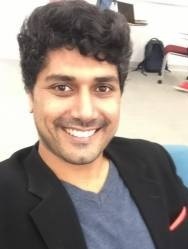Disclaimer: The Eqbal Ahmad Centre for Public Education (EACPE) encourages critical and independent thinking and believes in a free expression of one’s opinion. However, the views expressed in contributed articles are solely those of their respective authors and do not necessarily reflect the position or policy of the EACPE.
Sounds strange? Well, it’s difficult not to relate the Pakistani rishta culture with getting a doctoral degree abroad.
Both these processes have uncanny similarities; except at the end of matrimonial relation, one gets a bride while the culmination of other awards a degree.
Starting with the match-making process in the marriage business, we have a similar trend in academia. Potential ads, recommendations from fellow scholars, websites posting PhD positions in different universities play just like ‘rishta aunties’ and shadi.com.
Once hooked, the initial step is finding the best fit, a potential advisor in this case. One after the other, meetings in person and on Zoom are held; just like the match-making process where the prospective bride and groom meet and greet online and offline telling each other what they plan for the future. Sometimes; the PhD advisor has very high demands for his student or vice versa. Usually, it takes a couple of attempts by the student and advisor to find their companion if both are serious and have an actual plan for the future. Both of the processes are highly competitive and luck plays dominant too.
Like match-making, the financial status of the two parties holds pivotal importance. If the student is funded externally through some scholarship like Fulbright or if the advisor has funding- the chances of being sought are very high. In this case, they can cherry-pick as per the ideal image they have in their minds, else – compromise is highly recommended to maintain some standard in the society!
Potential ads, recommendations from fellow scholars, websites posting PhD positions in different universities play just like ‘rishta aunties’.
Once the advisor is engaged; it marks the start of an unprecedented relationship, especially in the life of the student. The relationship can range from smooth to roller coaster and from being ideal to a complete disaster. Based on my almost a decade of experience in academia and industry; there are more chances for things to go down the hill than upwards; just like in any other relationship. After all; how many couples in real you have seen behaving like Shahrukh and Kajol in DDLJ!
Worse is when this relationship turns toxic or abusive. It can happen both ways but generally, the student is at the receiving end and the suffering for years is huge and results in an irrevocable loss. Advice! Choose your partners carefully in academia and life!
Toxicity in an advisor-student relationship means the advisor is unable to comprehend the problem himself and plays a blame game with the student, shattering his confidence rather than providing him resources and help to solve the issue. Manipulation is rampant too. This means asking the students undue favours; asking for his authorship rights and not allowing him to spend the project money on conferences.
No matter how bad the relationship is going; the presentation of a proposal is never short of amusement. Just like a one-sided love story; the student will claim to break stars from the sky. If left unchecked, such relationships result in deteriorating mental health, loss of precious years, and even end of lives. Don’t fall victim to self-denial that everything is going to be rosy before the next anniversary- next semester in the case of PhD.
Just like in most married relationships; kids in an academic bond come in the form of courses, assignments, presentations, and examinations demanding our undivided attention, endless time giving us sleepless nights!.
Don’t think the ‘dawats after shadi’ from the relatives are missing! Students have conferences where they have to go frequently, meet with people and talk with them about what they are doing. Ironically; most of the people in the conference will ask you the same type of questions just like our aunts and uncles ask: why this research? What will be the outcome? When are you finishing?
Finally, usually after a couple of years depending on the luck, the couple decides to meet the in-laws and try to convince them what he has been doing makes sense and can go ahead from being engaged to tying the matrimonial knot. At that point, the student has the Final Defence Examination, and the committee members play as the in-laws- asking the hardest questions.
Once they listen to the candidate and realise that he has potential; they let the candidate have a happy life ahead! Either you get the bride, the degree, or a life long lesson!
About the Author
 Muhammad Ali Falak is a Fulbright PhD candidate at Texas A&M University and graduated from The University of Tokyo. He has worked at different positions in Pakistan, Japan and the USA. His work experience includes teaching in universities, research, consultancy and project management and several other businesses. He is also serving as a Senator in the Graduate Professional Student Government at Texas A&M University. Visit his Linkedin page here.
Muhammad Ali Falak is a Fulbright PhD candidate at Texas A&M University and graduated from The University of Tokyo. He has worked at different positions in Pakistan, Japan and the USA. His work experience includes teaching in universities, research, consultancy and project management and several other businesses. He is also serving as a Senator in the Graduate Professional Student Government at Texas A&M University. Visit his Linkedin page here.










